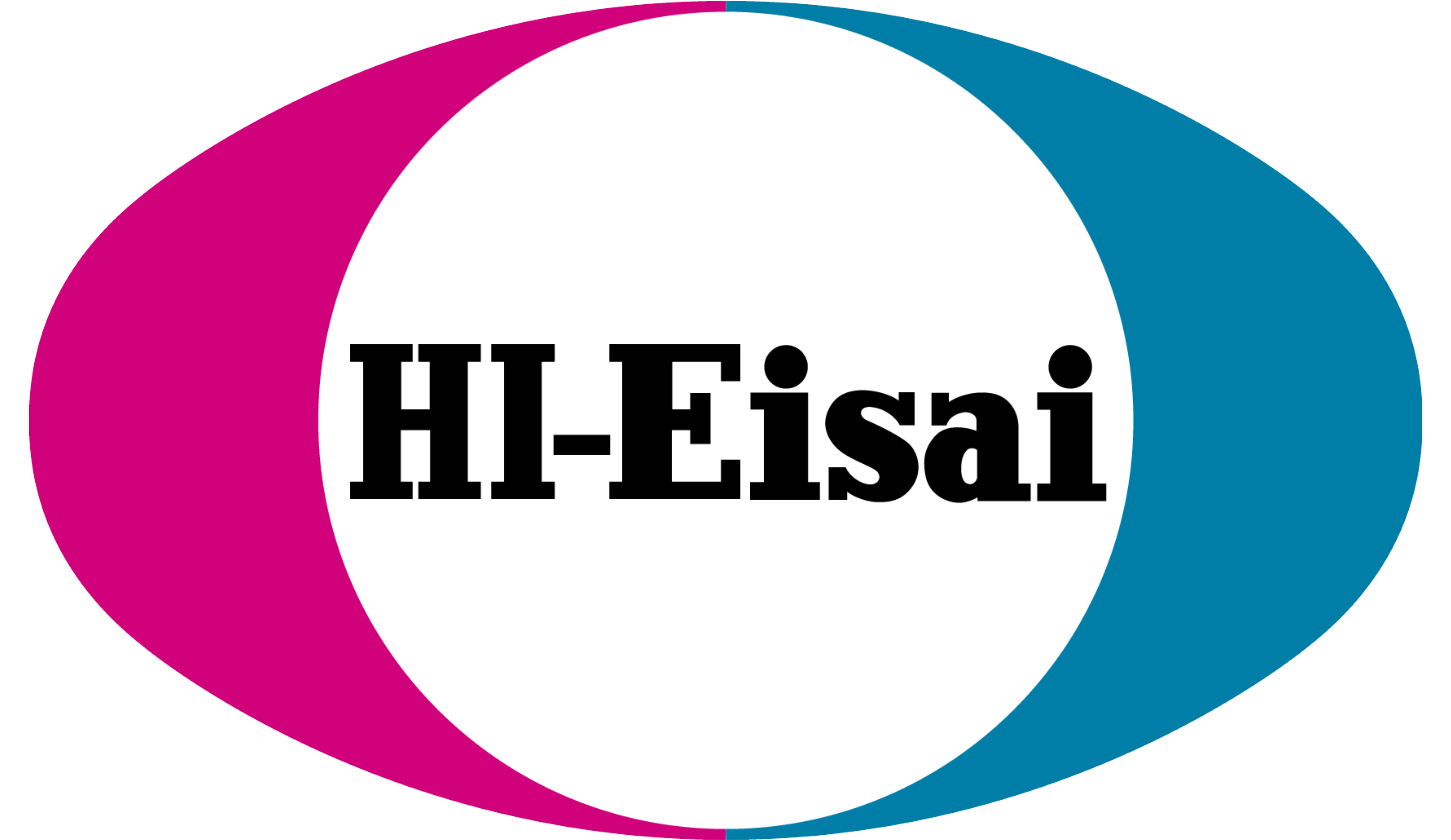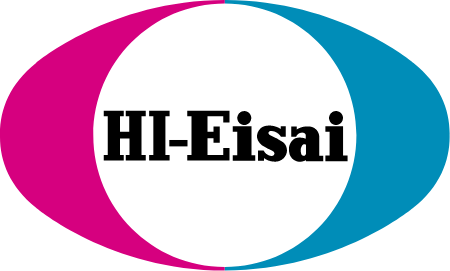Eisai Co., Ltd. (Headquarters: Tokyo, CEO: Haruo Naito, “Eisai”) announced today the company will present the latest findings on lecanemab (generic name, U.S. brand name: LEQEMBI®), Eisai’s anti-amyloid beta (Aβ) protofibril* antibody for the treatment of Alzheimer’s disease (AD), at the 2024 International Conference on Alzheimer’s and Parkinson’s Diseases and related neurological disorders (AD/PD™) from March 5-9 in Lisbon, Portugal, and virtually. The lecanemab data and additional research findings from Eisai’s AD portfolio will be featured in 18 presentations, including ten oral presentations.
Eisai will present five oral presentations and one poster presentation on lecanemab results. From the Phase 3 Clarity AD study in subjects with mild cognitive impairment (MCI) due to Alzheimer’s disease (AD) and mild AD dementia (collectively known as early AD) with confirmed brain Aβ accumulation, presentations will include data on the effect of lecanemab treatment on tau accumulation in whole brain regions, and outcomes of long-term efficacy of lecanemab. In addition, the differences in the binding properties of multiple anti-amyloid (Aβ) antibodies to various types of Aβ and other data will be presented. Eisai will also host a symposium titled “Defining meaningful benefits to patients, caregivers, and healthcare systems in Alzheimer’s disease”.
“Lecanemab treatment of early AD in the Phase 3 Clarity AD study had less clinical decline and slower tau accumulation than placebo. ” said Michael Irizarry, M.D., Deputy Chief Clinical Officer and Senior Vice President of Clinical Research at Eisai Inc. “The earlier MCI due to AD and mild AD dementia are diagnosed and treated, the greater the opportunity for the patient to benefit. We will continue to share the importance of and rationale for early treatment with lecanemab to the scientific community.”
Eisai Symposium – Defining meaningful benefits to patients, caregivers, and healthcare systems in Alzheimer’s disease.
Eisai is sponsoring a symposium featuring three prominent clinical experts in the field of AD, Dr. Jeffrey Cummings, Dr. Robert Perneczky and Dr. Miia Kivipelto. Dr. Jeffrey Cummings will chair the symposium, and provide an overview of meaningful benefits, including clinical meaningfulness and the evolution of approaches for the clinical study of AD. Dr. Robert Perneczky will discuss how to assess meaningful benefits of treatments in development for AD. Dr. Miia Kivipelto’s presentation will provide new statistical methods to measure meaningful benefits and address various stakeholder perspectives. (Thursday, March 7, 11:10-12:50)
Eisai’s Chief Clinical Officer, Lynn Kramer, M.D., will give a plenary presentation as “Novel approaches to clinical development and the future potential of simulated placebo” on March 7 at the “Aβ TARGETING THERAPIES IN AD 1” session.
AD/PD 204 Presentations Relating to Eisai’s Key Compounds and Research
Oral Presentations
| Asset in Development, Session, Time (CEST) | Presentation Title |
|---|---|
|
Lecanemab |
Treatment with lecanemab disrupts tau accumulation across brain regions in early Alzheimer’s disease |
|
Lecanemab |
Binding characteristics of lecanemab, donanemab and other amyloid-beta antibodies to different forms of amyloid-beta in Alzheimer’s disease brains |
|
Lecanemab |
Lecanemab for the treatment of early Alzheimer’s disease: the extension of efficacy results from Clarity AD |
|
Lecanemab |
Structural dynamics of amyloid-β protofibrils and action of lecanemab as observed by high-speed atomic force microscopy |
|
Lecanemab |
A neuro-dynamic quantitative systems pharmacology (QSP) model for Alzheimer’s disease incorporating amyloid and tau pathophysiology |
|
General AD |
Digital cognitive assessments at baseline predict longitudinal clinical progression in early Alzheimer’s disease |
|
General Dementia |
Patient characteristics and comorbidities associated with different dementia etiologies among patients with mild cognitive impairment |
|
Biomarkers |
Plasma p-tau217 demonstrates increased association with regional amyloid and tau PET load compared |
|
Imaging/Biomarkers/Diagnostics |
High correlation of plasma tau and p-tau181 levels measured by a fully automated immunoassay system and an immunoprecipitation mass spectrometry assay Sysmex/Eisai collaboration |
|
General AD |
Real-world study to evaluate diagnostic, referral and treatment patterns in early Alzheimer’s disease among community-based practices in the US |
Poster Presentations
| Asset in Development, Abstract and Poster Number, Date (CEN) | Presentation Title |
|---|---|
|
Lecanemab |
Characterization of amyloid-beta species in Alzheimer’s disease brain and the unique binding properties of lecanemab Presented by BioArctic |
|
E2511 |
Network-informed unbiased global proteomics strategy to discover biomarkers for E2511, a novel TrkA modulator |
|
Biomarkers |
A prospective multicenter study to evaluate implementation of confirmatory blood-based biomarkers for Alzheimer’s disease in real-world clinical practice |
|
Biomarkers |
Clinical Performance Evaluation Of Plasma Amyloid-β Biomarkers In Predicting Amyloid Positivity In Community-Based Mild Cognitive Impairment Cohort Shimadzu/Oita University/Eisai collaboration |
|
General AD |
Development of a risk prediction model for mild cognitive impairment using EHR data |
|
General AD |
Community-based physician attitudes toward the diagnosis and treatment of early Alzheimer’s disease |
|
General AD |
De-risking clinical trial design via model-informed drug development with the Critical Path for Alzheimer’s Disease Consortium |
|
General AD |
Increased level of 12 KDA C-terminal APOE fragments in AD brain BioArctic/Eisai collaboration |
Eisai-Sponsored Symposium
| Time (CEST) | Title, Presenter |
|---|---|
|
Thursday, March 7, 11:10 – 12:50
|
Defining meaningful benefits to patients, caregivers, and healthcare systems in Alzheimer’s disease Jeffrey Cummings, Robert Perneczky, Miia Kivipelto, |
Plenary Presentation
| Session, Time (CEST) | Title |
|---|---|
|
Abeta Targeting Therapies in AD 01
Thursday, March 7, 15:20 – 15:35 |
Novel approaches to clinical development and the future potential of simulated placebo |
Eisai serves as the lead of lecanemab development and regulatory submissions globally with both Eisai and Biogen co-commercializing and co-promoting the product and Eisai having final decision-making authority.
* Protofibrils are large Aβ aggregated soluble species of 75-5000 Kd.1, 2,3
Media Inquiries:
Public Relations Department,
Eisai Co., Ltd.
+81-(0)3-3817-5120
Eisai Europe, Ltd.
(Europe, Australia, New Zealand and Russia)
EMEA Communications Department
+44 (0) 786 601 1272
EMEA-comms@eisai.net
Eisai, Inc. (U.S.)
Libby Holman
+1-201-753-1945
Libby_Holman@eisai.com
[Notes to editors]
1. About Lecanemab
Lecanemab (brand name in the U.S.: LEQEMBI) is the result of a strategic research alliance between Eisai and BioArctic. LEQEMBI is a humanized immunoglobulin gamma 1 (IgG1) monoclonal antibody directed against aggregated soluble (protofibril) and insoluble forms of amyloid-beta (Aβ). LEQEMBI is an amyloid beta-directed antibody indicated as a disease-modifying treatment for Alzheimer’s disease (AD) in the U.S. The U.S. Food and Drug Administration (FDA) granted traditional approval in July, 2023. In the U.S., treatment with LEQEMBI should be initiated in patients with mild cognitive impairment or mild dementia stage of disease, the population in which treatment was initiated in clinical trials. There are no safety or effectiveness data on initiating treatment at earlier or later stages of the disease than were studied.
Please see full U.S. Prescribing Information.
In Japan, Eisai received approval from the Ministry of Health, Labour and Welfare (MHLW) in September, 2023, to manufacture and market lecanemab as a treatment for slowing progression of mild cognitive impairment (MCI) and mild dementia due to AD. In China, Eisai received approval for the treatment of MCI due to AD and mild AD in January 2024
LEQEMBI’s approval was based on Phase 3 data from Eisai’s large, global Clarity AD clinical trial, in which LEQEMBI met its primary endpoint and all key secondary endpoints with statistically significant results and confirmed the clinical benefit of LEQEMBI.4,5 The primary endpoint was the global cognitive and functional scale, Clinical Dementia Rating Sum of Boxes (CDR-SB). In the Clarity AD clinical trial, treatment with LEQEMBI reduced clinical decline on CDR-SB by 27% at 18 months compared to placebo. In addition, the secondary endpoint from the AD Cooperative Study-Activities of Daily Living Scale for Mild Cognitive Impairment (ADCS MCI-ADL), which measures information provided by people caring for patients with AD, noted a statistically significant benefit of 37% compared to placebo. The ADCS MCI-ADL assesses the ability of patients to function independently, including being able to dress, feed themselves and participate in community activities. The most common adverse events (>10%) in the LEQEMBI group were infusion reactions, ARIA-H (combined cerebral microhemorrhages, cerebral macrohemorrhages, and superficial siderosis), ARIA-E (edema/effusion), headache, and fall.
Eisai has also submitted applications for approval of lecanemab in 14 countries and regions, including EU, Canada and Great Britain.
Eisai has completed a lecanemab subcutaneous bioavailability study, and subcutaneous dosing of lecanemab is currently being evaluated in the Clarity AD (Study 301) open-label extension (OLE). A maintenance dosing regimen has been evaluated as part of Study 201.
Since July 2020 the Phase 3 clinical study (AHEAD 3-45) for individuals with preclinical AD, meaning they are clinically normal and have intermediate or elevated levels of amyloid in their brains, is ongoing. AHEAD 3-45 is conducted as a public-private partnership between the Alzheimer’s Clinical Trial Consortium that provides the infrastructure for academic clinical trials in AD and related dementias in the U.S, funded by the National Institute on Aging, part of the National Institutes of Health, Eisai and Biogen. Since January 2022, the Tau NexGen clinical study for Dominantly Inherited AD (DIAD), that is conducted by Dominantly Inherited Alzheimer Network Trials Unit (DIAN-TU), led by Washington University School of Medicine in St. Louis, is ongoing and includes lecanemab as the backbone anti-amyloid therapy.
2. About the Collaboration between Eisai and Biogen for AD
Eisai and Biogen have been collaborating on the joint development and commercialization of AD treatments since 2014. Eisai serves as the lead of LEQEMBI development and regulatory submissions globally with both companies co-commercializing and co-promoting the product and Eisai having final decision-making authority.
3. About the Collaboration between Eisai and BioArctic for AD
Since 2005, Eisai and BioArctic have had a long-term collaboration regarding the development and commercialization of AD treatments. Eisai obtained the global rights to study, develop, manufacture and market LEQEMBI for the treatment of AD pursuant to an agreement with BioArctic in December 2007. The development and commercialization agreement on the antibody LEQEMBI back-up was signed in May 2015.
References
1 https://www.alzforum.org/news/conference-coverage/lecanemab-sweeps-toxic-av-protofibrils-catches-eyes-trialists
2 Sehlin D, Englund H, Simu B, Karlsson M, Ingelsson M, Nikolajeff F, Lannfelt L, Pettersson FE. Large aggregates are the major soluble Aβ species in AD brain fractionated with density gradient ultracentrifugation. PLoS One. 2012;7(2):e32014 https://doi.org/10.1371/journal.pone.0032014 Epub 2012 Feb 15. PMID: 22355408; PMCID: PMC3280222.
3 Söderberg, L., Johannesson, M., Nygren, P. et al. Lecanemab, Aducanumab, and Gantenerumab — Binding Profiles to Different Forms of Amyloid-Beta Might Explain Efficacy and Side Effects in Clinical Trials for Alzheimer’s Disease. Neurotherapeutics (2022). https://doi.org/10.1007/s13311-022-01308-6. Accessed February 9, 2023
4 Eisai presents full results of lecanemab Phase 3 confirmatory Clarity AD study for early Alzheimer’s disease at Clinical Trials on Alzheimer’s Disease (CTAD) conference. Available at: https://www.eisai.com/news/2022/news202285.html Last accessed: February 2024.
5 van Dyck. C, et al. Lecanemab in Early Alzheimer’s Disease. The New England Journal of Medicine. DOI: 10.1056/NEJMoa2212948. https://www.nejm.org/doi/full/10.1056/NEJMoa2212948






